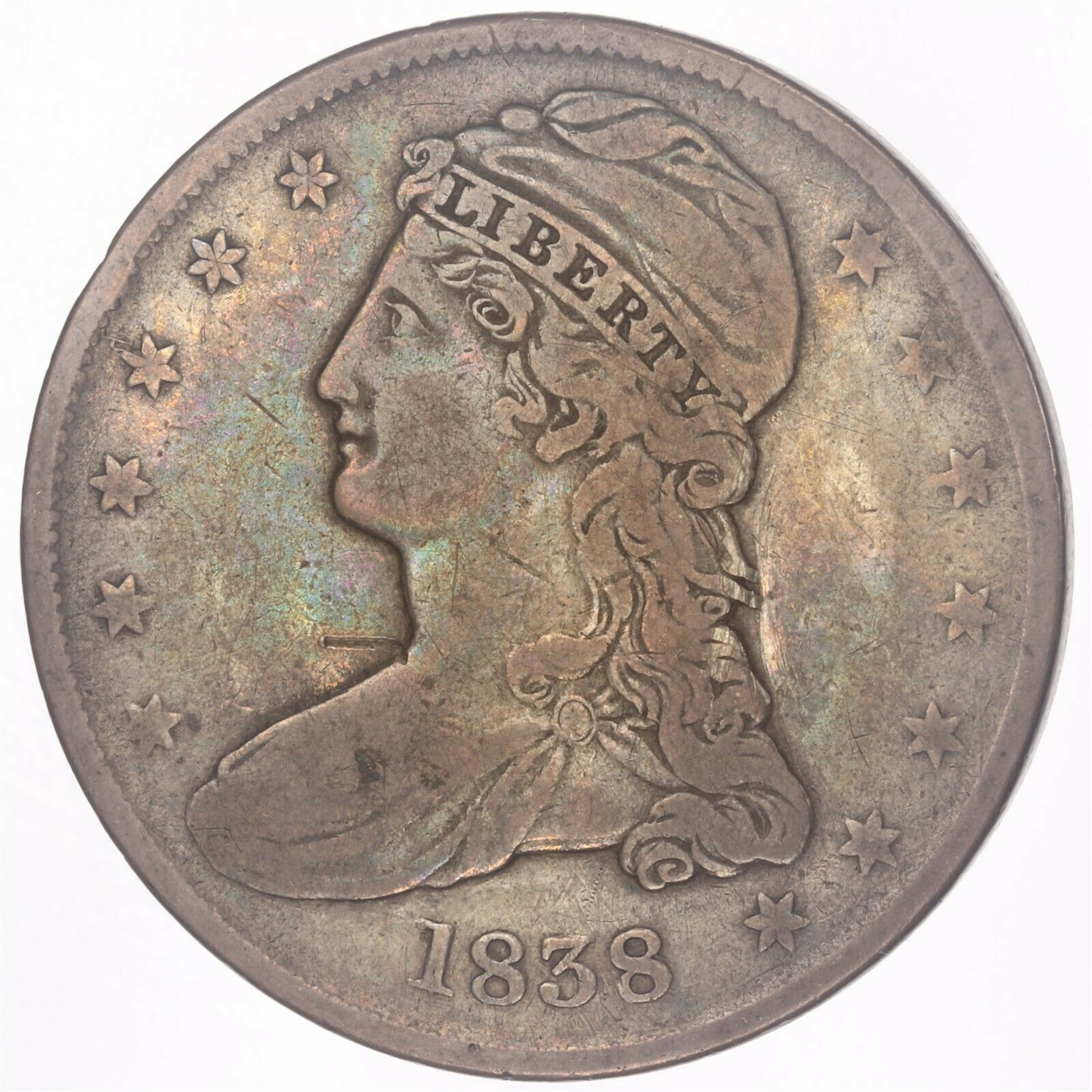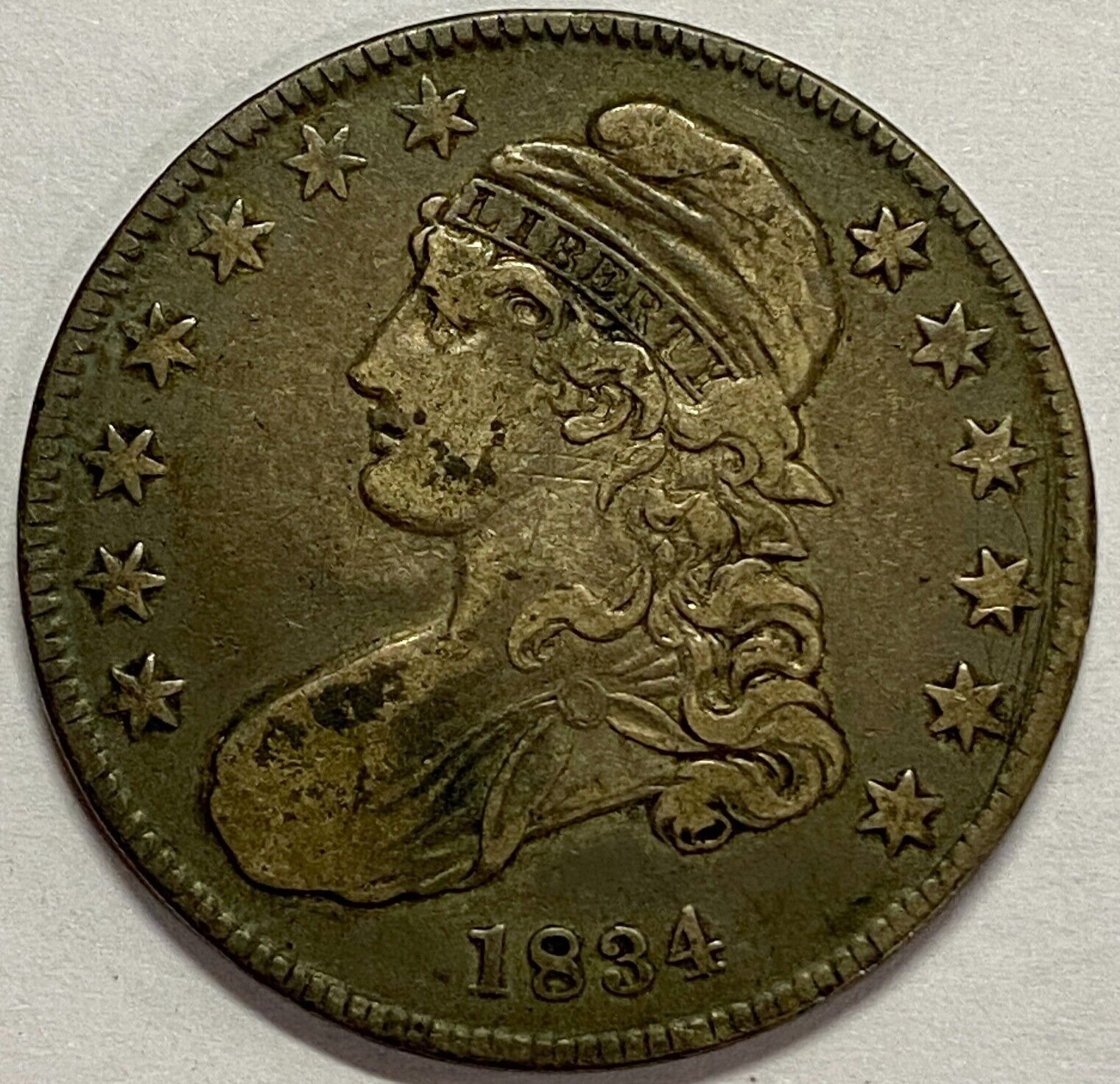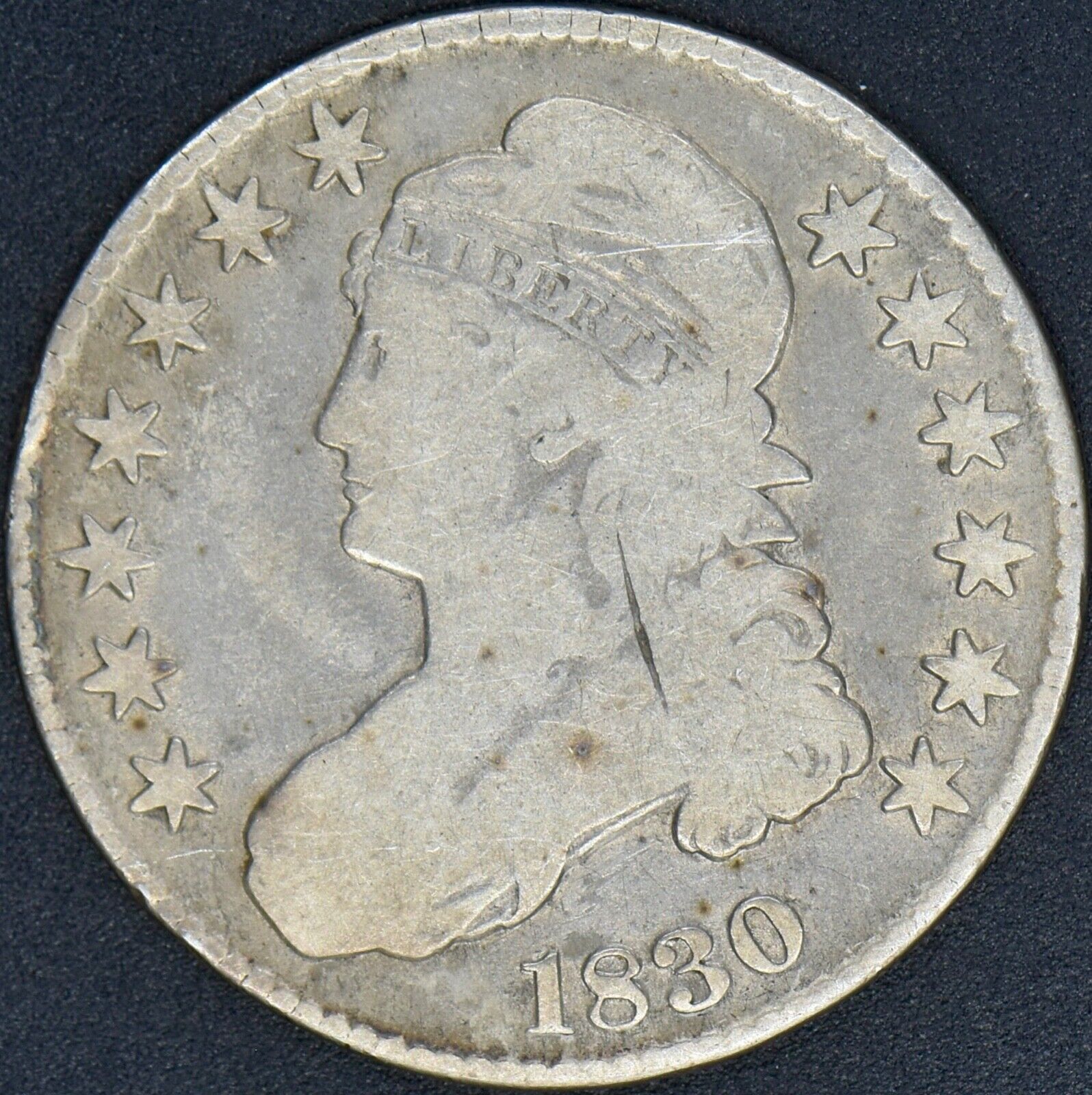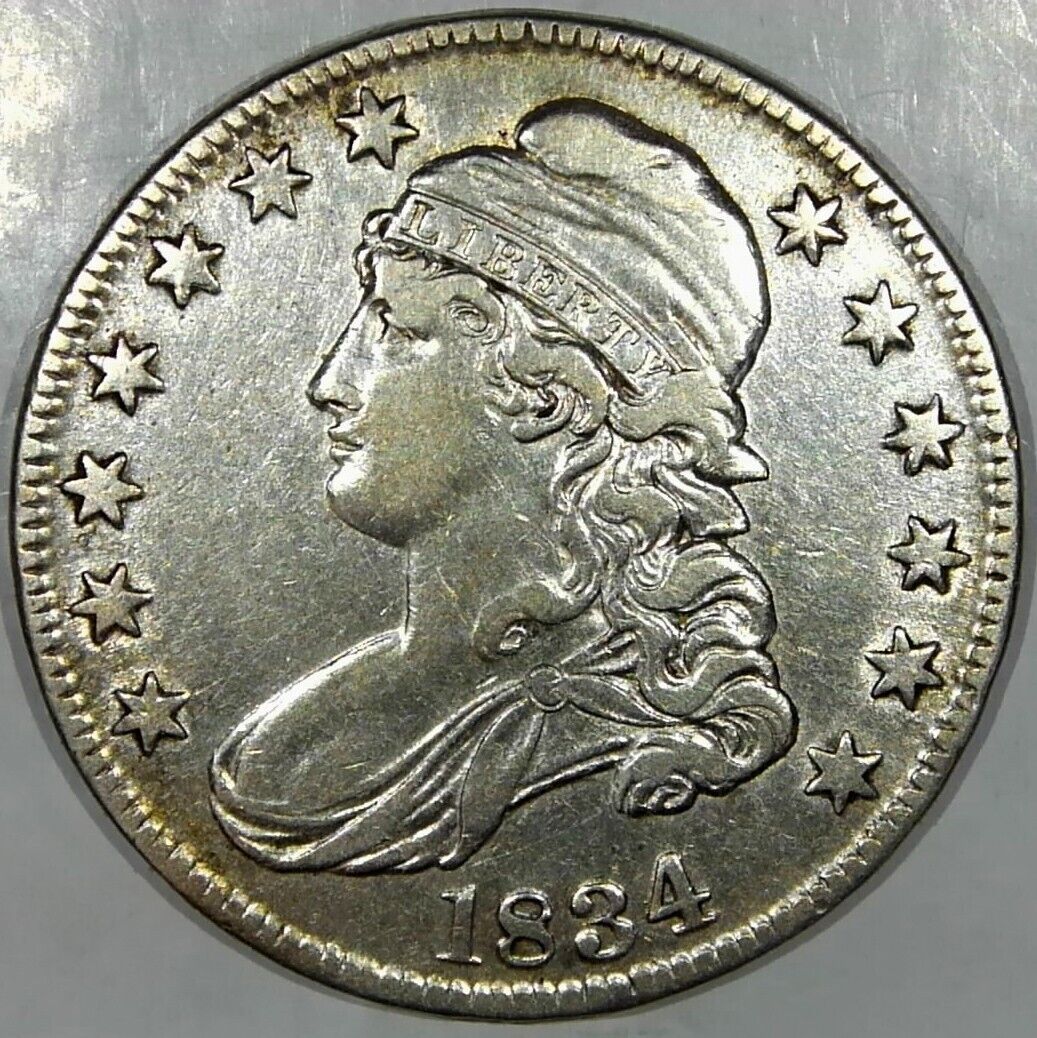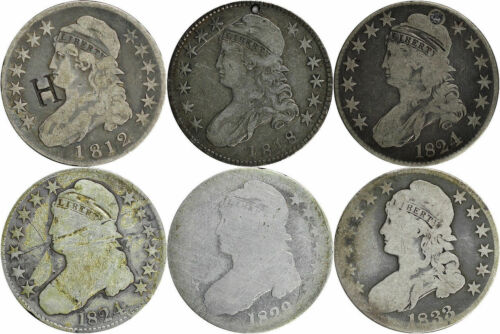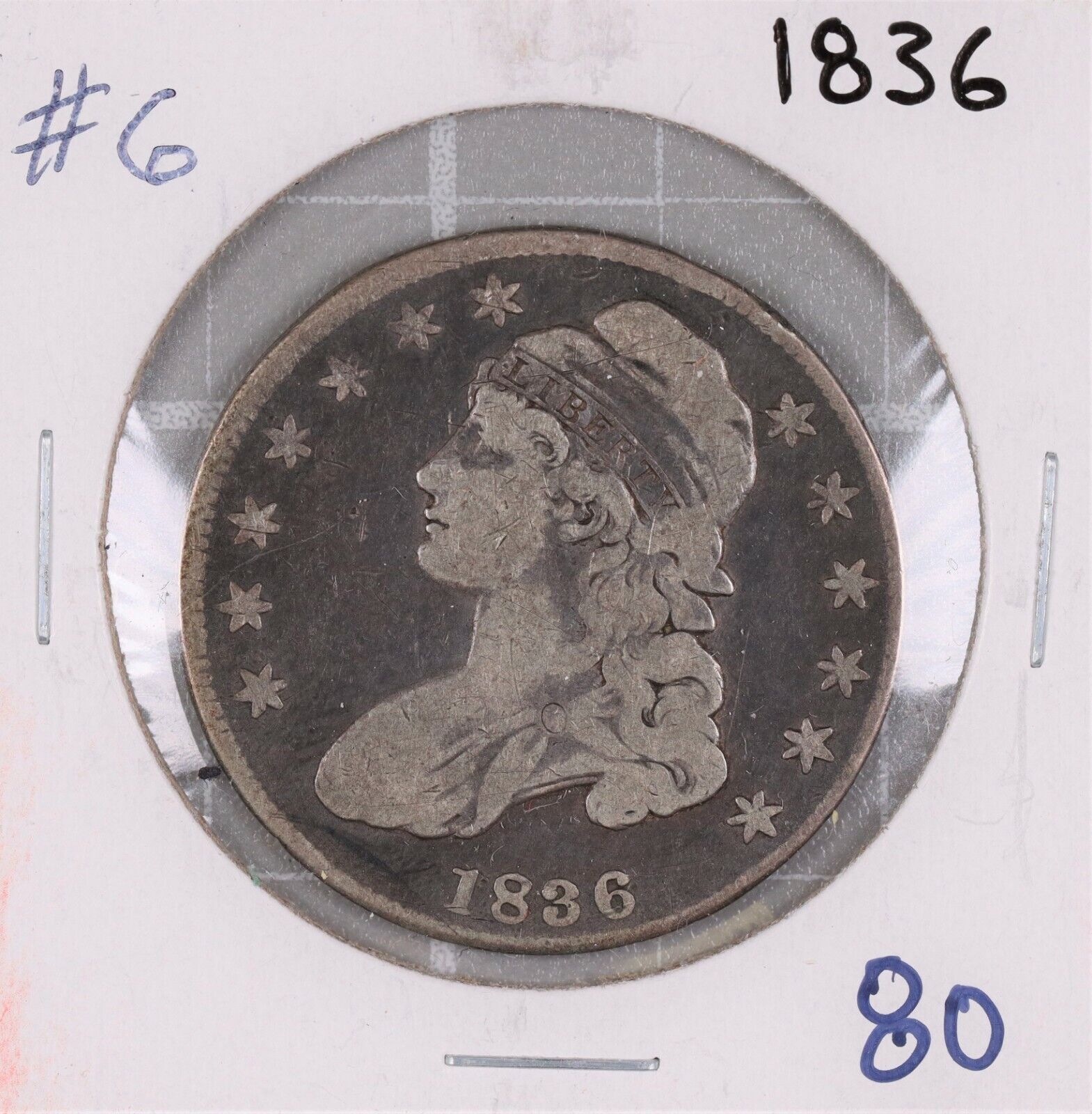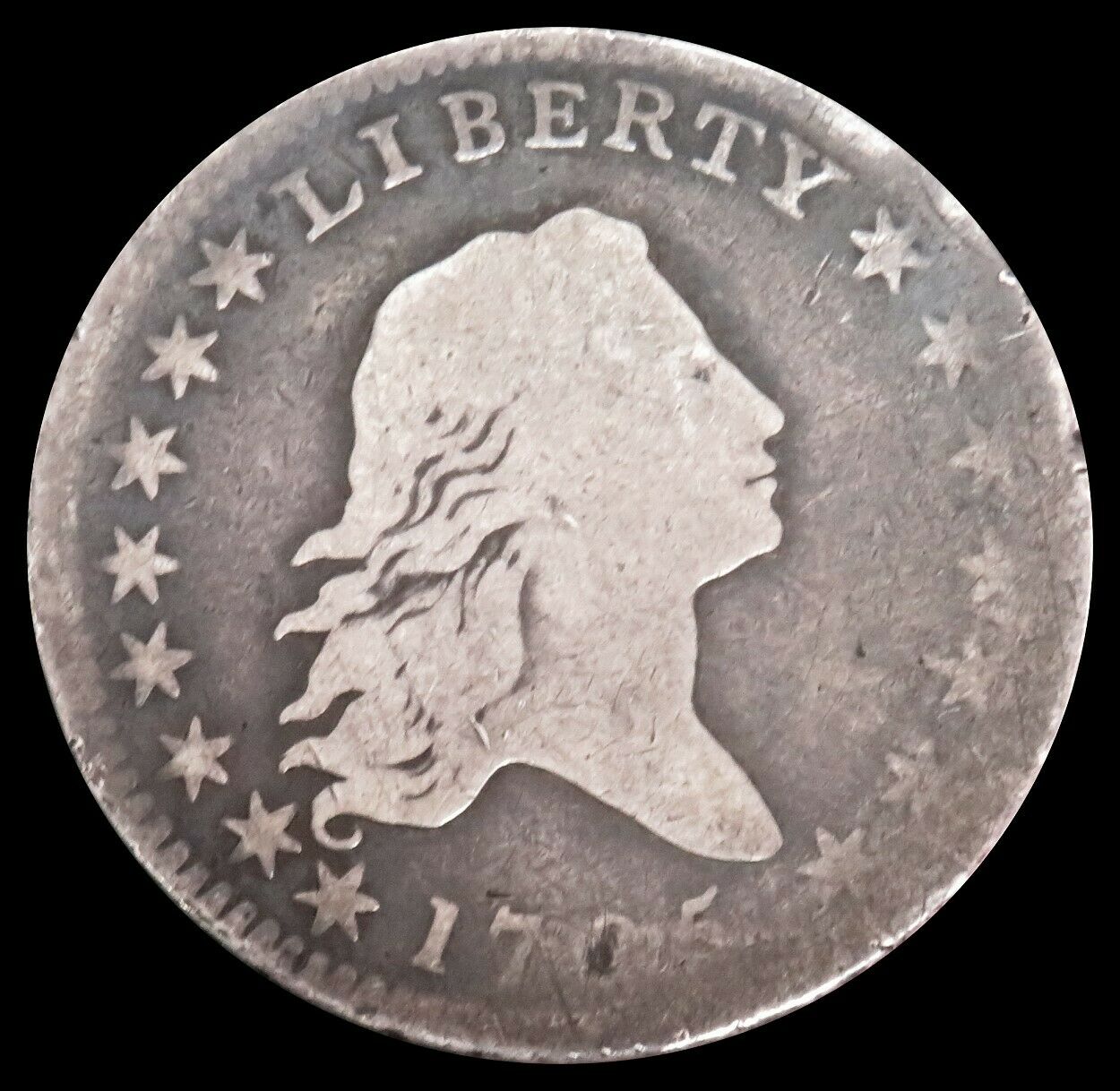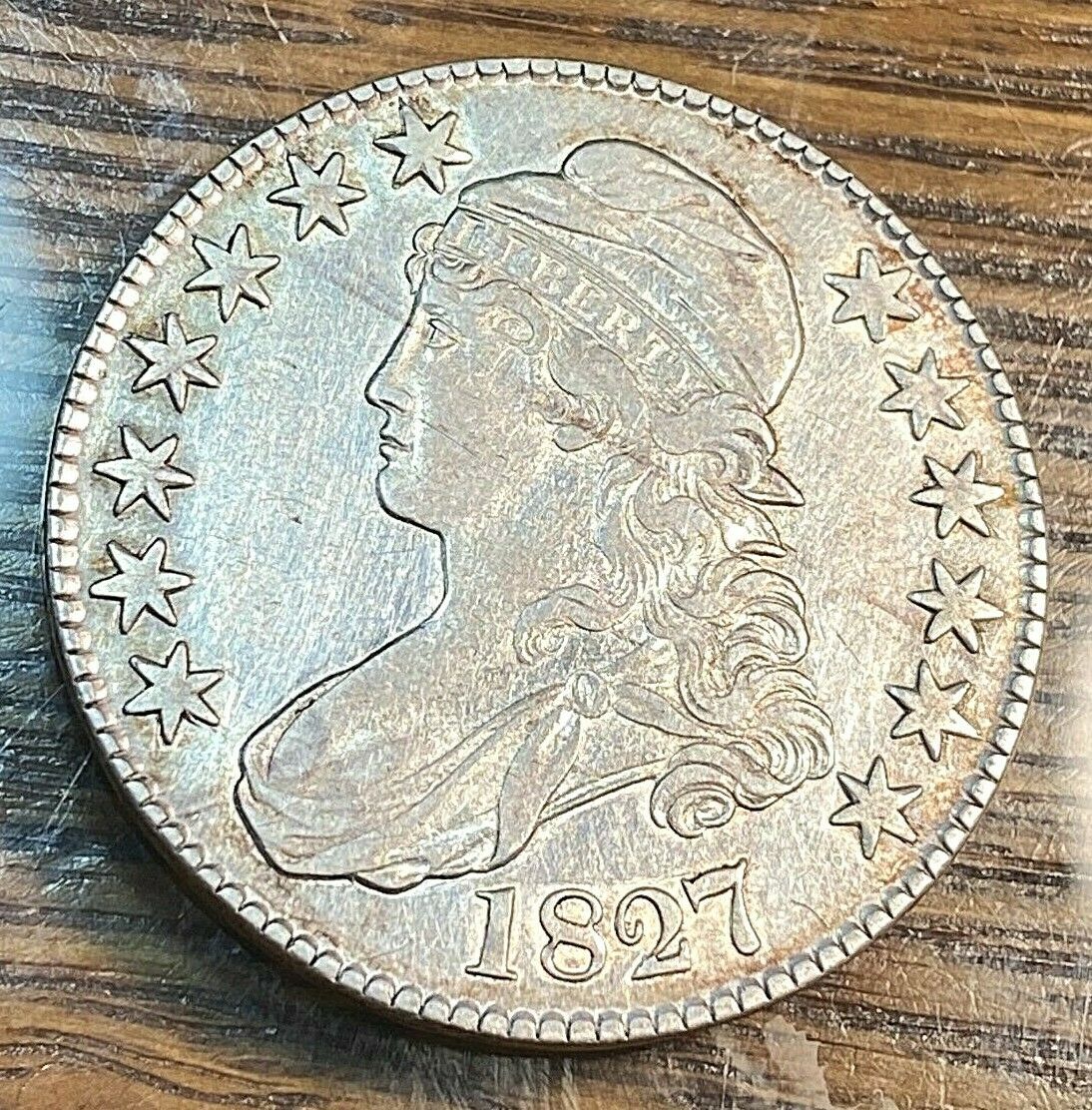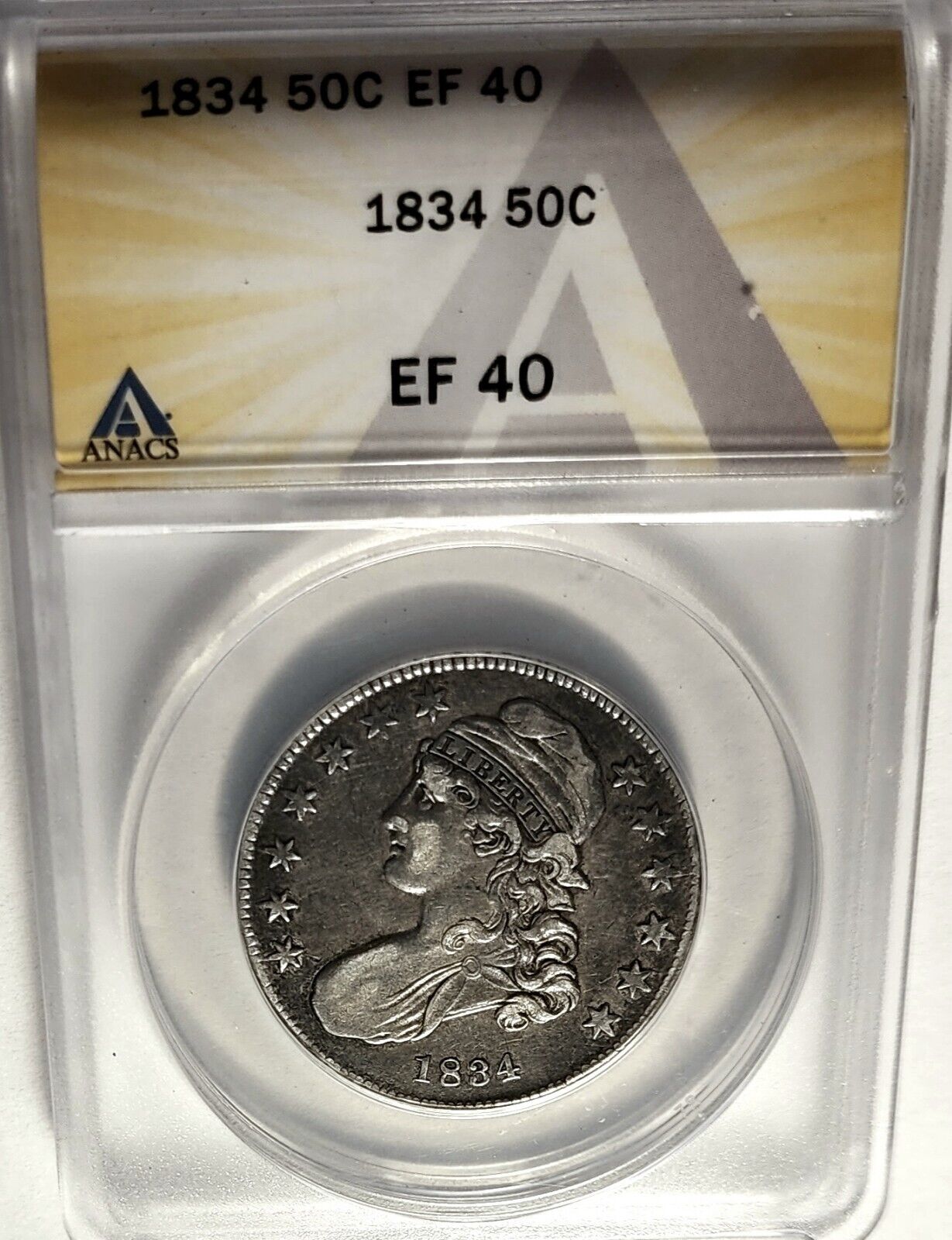-40%
1838-P Capped Bust Half Dollar XF Extra Fine JO/919
$ 119.32
- Description
- Size Guide
Description
CoinCapped Bust Half Dollar
Year
1838
Mint
Philadelphia
Graded
No
Certified By
Uncertified
Grade
Ungraded
Notes
Capped Bust Half Dollar (1807-1836) Lettered Edge (1807 – 1836) John Reich took over as engraver at the Mint in 1807. He immediately began work on redesigning the nation’s coinage. He created the Capped Bust motif that was used across denominations for the next three decades. The obverse features a depiction of Lady Liberty wearing a Phrygian cap, a symbol of freedom. The reverse shows a heraldic eagle with the denomination below and the words UNITED STATES OF AMERICA above. In the edges the phrase FIFTY CENTS OR HALF A DOLLAR was impressed. This edge lettering was to discourage charlatans from shaving silver off and passing the underweight coins off to merchants. The series is extremely popular and has a number of varieties where extensive study has been done. Attribution has been recorded accounting for the exacting use of obverse and reverse dies. Enthusiasts collect the series by these die pairings. Reich’s time at the Mint ended in 1817, but his works continued in production until two decades later when the Mint upgraded their facilities and the Capped Bust coinages gave way to Christian Gobrecht’s seated designs. Reeded Edge (1836 - 1839) With the introduction of steam presses at the Mint in the mid-1830’s, newly appointed “second†engraver Christian Gobrecht reinterpreted Gilbert Scot’s Capped Bust design. His rendition features smaller obverse stars and a simpler reverse with the removal of the ribbon bearing E PLURIBUS UNUM. All coins previous to this were struck on a screw press using man-power or horses to generate the force to strike the coins. The early presses allowed planchets to spread out, but the newer steam presses required the use of collared die to hold the planchet in place while striking. This act would obliterate the edge lettering thus all newer coins were produced with plain or reeded edges imparted from the collars. Despite being a limitation of the steam presses, the reeded edge coins are representative of an improving Mint facilities. Gobrecht’s Capped Bust version was only struck for three years.
Track Page Views With
Auctiva's FREE Counter
